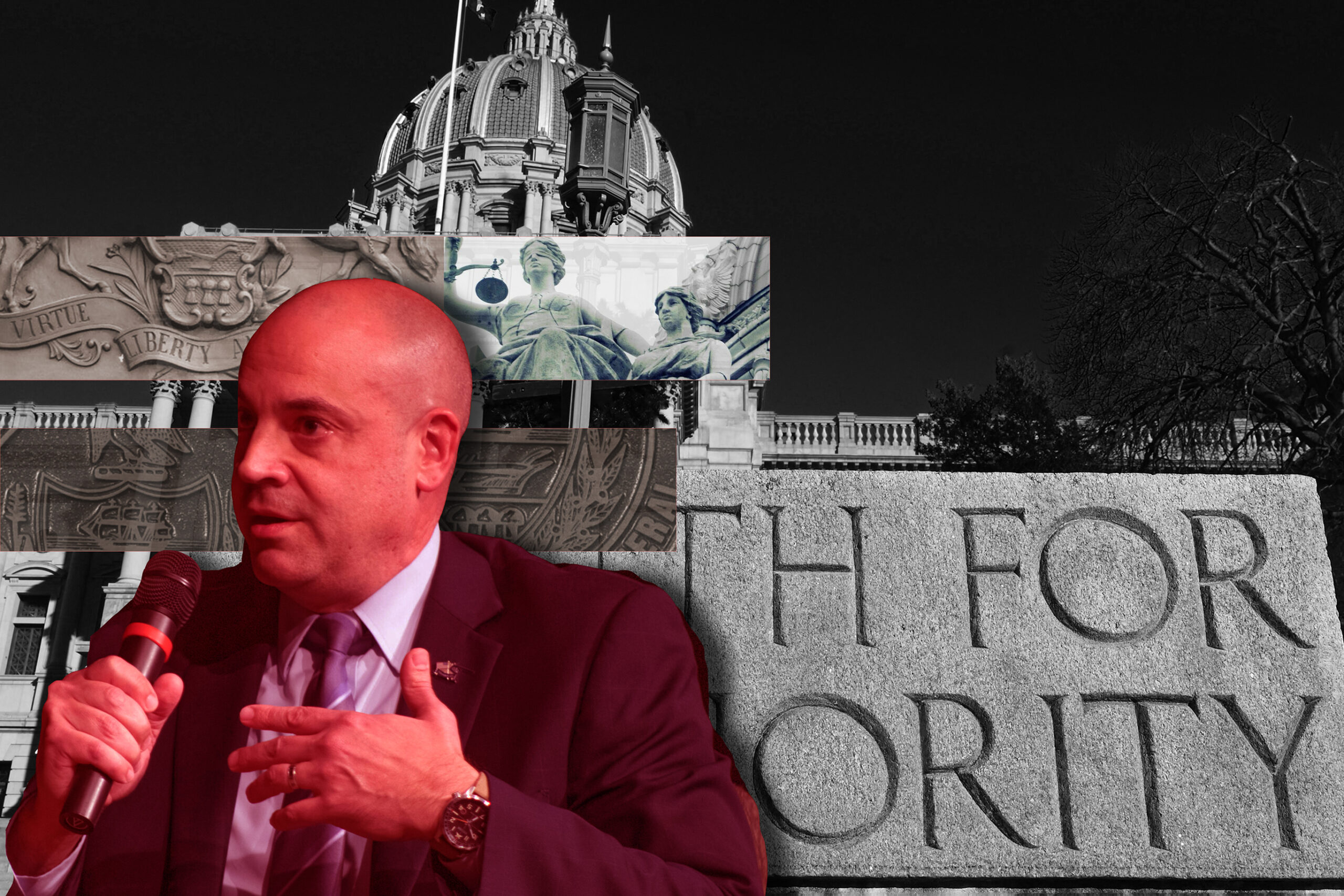Even with elections over a month behind us, much of the Bi-Co community is continuing to grapple with the reality of a second Trump term. But as the focus is continuously directed and redirected between new cabinet picks or presidential pardons, the elections down the Pennsylvania ballot have been largely overlooked. Pennsylvania was hit with a red wave this year, with all four statewide elections being won by Republican candidates. Among those was Pennsylvania’s Attorney General election, which was snagged by Republican Dave Sunday with a 51-46% vote. However, while his policies won him a majority of Pennsylvania votes, they will likely only increase policing and incarceration without making Pennsylvania any safer.

The Bi-Co is generally shielded from the justice system of Pennsylvania. The colleges expect us to follow state laws and college policies, but a broken rule or law has drastically different consequences on campus than it does in the rest of the state. The colleges’ method of conflict resolution champions restorative practices and an honor code-based system. Students are generally protected from persecution for alcohol- and drug-related offenses. The Bi-Co system prioritizes resolving conflict in a constructive way that promotes dialogue, growth, and accountability.
Stepping outside of the Bi-Co campuses, the landscape of justice and accountability looks
drastically different, and the effects of the new attorney general could be felt broadly. Citing his record as York County’s district attorney, Dave Sunday has positioned himself as “tough on crime,” particularly on cracking down on drugs and guns. Sunday was an appealing candidate for many Pennsylvania voters for several reasons: his career as a prosecutor, his repeated vow to prioritize public safety, and his promises to protect senior citizens and young children. However, while his rhetoric may be enough to win the election, his policies seem to prioritize harsh punishments and policing over reducing crime and increasing public safety.
In a debate against Sunday’s opponent, Eugene DePasquale, when asked how he would address Pennsylvania’s current epidemic of mass shootings, Sunday offered a strategy for identifying “people who have the highest likelihood of shooting” as a resource for police shootings. These methods of identifying individuals considered high risk to commit crimes are something being implemented across the country as prosecution and policing lean more heavily on data to inform arrests and prosecutions. One such program is CompStat, a system used in New York. As Emily Bazelon pointed out in her book, “Charged: The New Movement to Transform American Prosecution and End Mass Incarceration,” the problem with these systems is that they lead to over-policing certain areas. In practice, Black and brown people are the most targeted. Sunday’s vague words hide his actual intentions; they echo the language of prosecutors around the country whose policies perpetuate mass incarceration.
Additionally, during the debate, Sunday danced around questions asking whether he would
prosecute women who have abortions or doctors who perform abortions in the event of a state- or nationwide abortion ban. He promised only to enforce Pennsylvania law and asserted that he did not believe the state legislature would instate an abortion ban. However, with a Project 2025- based Trump presidency imminent, the threat of a national abortion ban is looming. Project 2025 vows a nationwide ban on abortion drugs, which are used in 63% of US abortions, in addition to several other restrictions to reproductive health care. Without an attorney general who is willing to stand up against abortion bans, women’s health care in Pennsylvania is at risk.
Finally, Sunday has stated that he will support seeking the death penalty in specific cases. No executions have taken place in Pennsylvania since 1999 and there is currently a moratorium on executions. Using the death penalty is costly and ineffective. The 408 people on death row since 1978 are conservatively estimated to cost Pennsylvanians $816 million more than if they were sentenced to life without parole. There is no evidence that the death penalty deters crime, but it has been shown to disproportionately affect Black and Hispanic people. Bringing back the death penalty is a step away from progress and a step towards high costs and no benefits for Pennsylvania communities.
Dave Sunday’s policy promises are problematic not only for their potential to reinforce mass incarceration and harm communities of color, but also for their failure to ensure public safety. Restorative methods of conflict resolution, like those used by the Bi-Co, when used as an alternative to the traditional legal system, tend to have better outcomes in reducing recidivism. Harmed people are generally significantly more satisfied by a restorative process than a traditional one. In contrast, policies designed to be “tough on crime” work to put people behind bars, but do not deter crime from happening or make communities safer. The most effective
strategies to prevent crime are not retroactive and penal. They address systemic inequality underlying crime and prioritize reducing recidivism and increasing accountability. Dave Sunday’s campaign has prioritized comforting rhetoric over effective methods. As attorney general, he is empowered to instate policies that, while intended to reduce crime, will recklessly increase policing and perpetuate mass incarceration.
While Sunday cannot change the rules of the Bi-Co, he has the potential to cause damage across Pennsylvania.
